
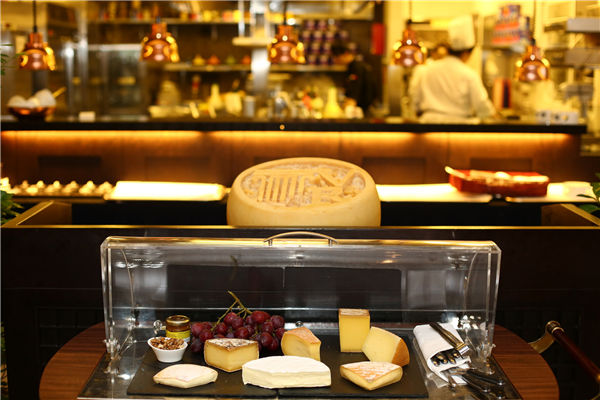 |
|
Photo provided to China Daily |
Cheese number four is Morbier, distinctive for the thin black layer of black ash that divides it horizontally in the middle. Cheesemakers traditionally get to the end of the day with a small amount of curd that is not enough to make an entire cheese. In the French village of Morbier they prevented waste by pressing the leftover curd from the evening milking into a mold, and spreading the ash over it to protect it overnight. "That keeps out the oxygen, so the ripeness stays high," says Ruckerl. In the morning, the cheesemakers add a layer of morning milk and finish the cheese. The layers are quite different, she notes: "The evening milk is more spicy, because the cows have been eating herbs and grasses during the day. The morning milk, on the other hand, has more fat." The result is rich and creamy, with a slightly bitter aftertaste.
The finale is Plangger, a handcrafted "mountain cheese" from the Tyrolian Alps of Austria. It's much nuttier than any previous selection, and sweeter thanks to six months of curing. "Like people, it gets calmer with age," says Ruckerl with a laugh. The cows that produce it eat only fresh grass and hay-no silo grass, which quickly becomes partly fermented in storage, she says.
"Quite fragrant," she says as she digs in with a cheese knife. "And for me, a taste of home."
Contact the writer at michaelpeters@chinadaily.com.cn
Valerie Osipov contributed to this story.
If you go
Via Roma
150 yuan plus 15-percent surcharge, excluding beverages.
Aug 14, 7 pm; Kempinski Beijing, 50 Liangmaqiao Road, Chaoyang district.
Reservations at 010-6465-3388 or 18514403244.
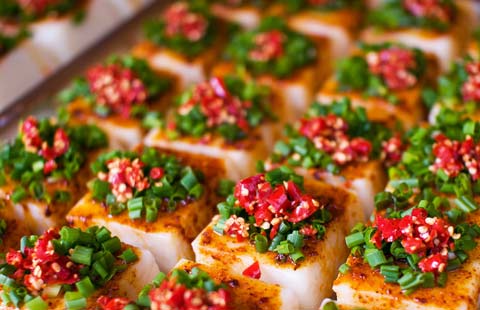
China's top 10 foodie cities |
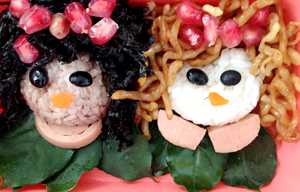
Cute boxed meals |
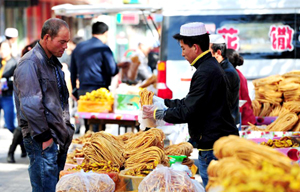
Muslims greet annual festival of Eid al-Adha in Yinchuan |
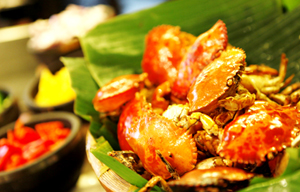
Cafe Noir hosts Singapore food festival |
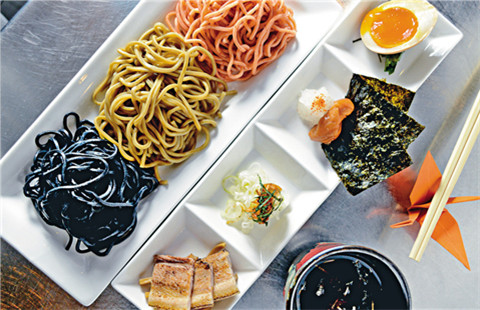
11 cold noodles for hot summer days |

Top 10 catering brands in China |

Watermelon toast gains popularity in Taiwan |
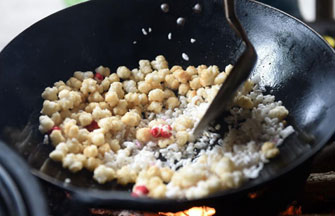
Tradition of drinking oleic tea in Guangxi |